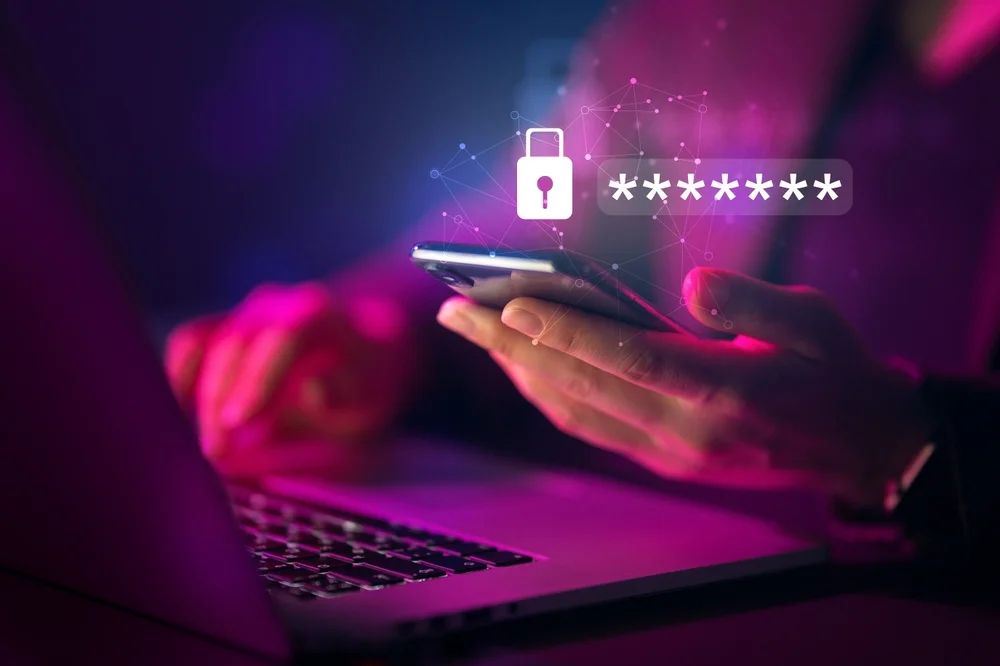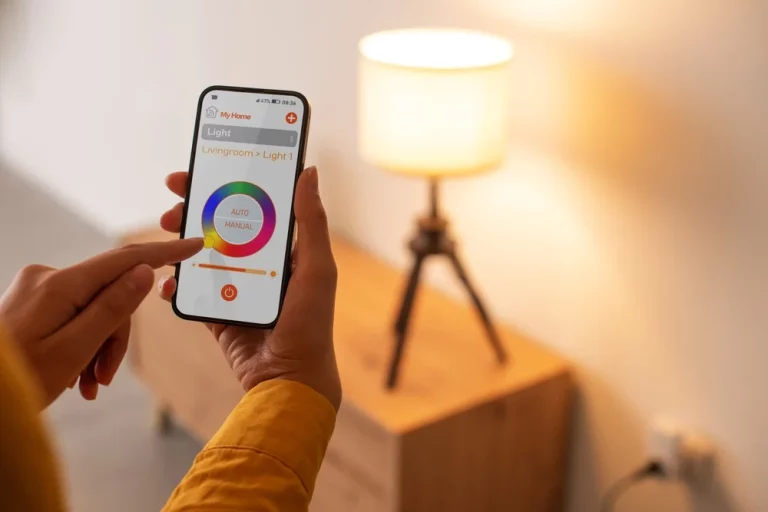How to Safeguard Your Data – Tips for Online Security

The internet is a wonderful tool. We can learn, shop, connect with friends, and do so much more. However, with all the benefits of the internet come risks. If you aren’t careful, your data—like your personal information, passwords, and even your money—can be stolen. This is why it’s important to understand online security and learn how to protect yourself.
In this guide, we’ll explore how to safeguard your data and stay safe while using the internet. You don’t need to be a tech expert to follow these tips; just a bit of caution and common sense can go a long way.
What is Online Security?
Online security refers to the protection of your personal information and data when you’re using the internet. It involves steps you can take to keep your data private and prevent others from accessing it without your permission. Just like you lock your doors to keep your home safe, you need to lock down your data to keep it secure online.
Why is Online Security Important?
Every time you go online, you leave traces of your personal data. This can include:
- Your name and address.
- Your email and passwords.
- Credit card details.
- Your location.
Without proper security, hackers can steal this information and use it to access your accounts, steal your identity, or even commit fraud. Data breaches happen when criminals exploit weak security, and this can have serious consequences for people and businesses alike.
For example, if a hacker gets your email password, they could access your social media, bank account, or any other service you’ve linked to that email. Scary, right? This is why online security is so important. If you want to learn how businesses safeguard customer data, check out this article on how data analytics helps businesses make smarter decisions.
Common Online Security Threats
Before we dive into how to protect yourself, it’s important to understand the types of threats you may face online. Here are some common ones:
- Phishing: This is when criminals send fake emails or messages that look like they’re from a trusted source. The goal is to trick you into clicking a link and providing personal information, like your password.
- Malware: Malware is harmful software designed to damage or gain unauthorised access to your computer. Viruses, spyware, and ransomware are types of malware that can steal your data or lock you out of your device.
- Hacking: Hackers use various methods to break into your accounts or devices. They may steal your data or install malicious software to gain control of your computer.
- Identity Theft: This happens when someone steals your personal information, such as your name, address, and credit card details, and uses it to commit fraud.
- Public Wi-Fi Risks: Using public Wi-Fi networks in places like cafés or airports can be risky. These networks are often not secure, making it easier for hackers to intercept your data.
How to Protect Your Data: Essential Tips
Now that you know the types of threats you might face, here are some simple steps to protect yourself:
1. Use Strong Passwords
Passwords are like the keys to your online accounts, so they need to be strong and hard to guess. Here’s how to create a strong password:
- Use a mix of letters (both upper and lower case), numbers, and symbols.
- Avoid using obvious information, like your name or birthday.
- Make your password at least 12 characters long.
- Use different passwords for different accounts.
A strong password might look something like this: G!7fdx@kA$3L. While this may seem hard to remember, you can use a password manager to store all your passwords in one secure place.
For extra protection, consider using two-factor authentication (2FA). This adds an extra step when you log in, like entering a code sent to your phone. Even if someone steals your password, they won’t be able to access your account without the code.
Learn more about the importance of regular security maintenance and why websites need constant updates.
2. Be Cautious with Emails and Links
As we mentioned earlier, phishing is a common way for hackers to steal your information. Be cautious when opening emails or clicking on links, especially if:
- The email comes from an unknown sender.
- The message asks for personal information.
- There are spelling mistakes or the message looks suspicious.
Before clicking any link, hover over it to see where it will take you. If the link looks odd or unfamiliar, don’t click it. When in doubt, contact the company directly through their official website.
If you receive an email claiming to be from a business, but you’re unsure if it’s real, you can also look up the company and contact them to verify. Remember, no legitimate company will ask for your password or sensitive information through email.
If you’re interested in how online behaviour impacts consumer trust, you might like this article on the impact of social proof on consumer behaviour.
3. Install Antivirus Software
Antivirus software is designed to detect and remove malware from your computer. It’s like having a shield that protects your device from harmful threats. Here’s how antivirus software can help:
- It scans your computer for malware and removes any harmful files.
- It blocks dangerous websites and warns you if you’re about to visit a risky site.
- It provides real-time protection, constantly monitoring your device for threats.
Make sure your antivirus software is up to date, as new threats are always emerging. Many antivirus programs offer free versions, but paid versions often provide more comprehensive protection.
4. Keep Your Software Up to Date
Software updates often include important security fixes. If you don’t update your operating system, apps, or browser, you may be leaving your device vulnerable to hackers.
Set your devices to update automatically so you don’t miss any critical security updates. This simple step can protect you from malware and other online threats.
Additionally, using outdated software for your business can have serious consequences. Read more about the evolution of web design and how it impacts security and performance.
5. Be Careful on Public Wi-Fi
Using public Wi-Fi can be convenient, but it’s also risky. These networks often lack proper security, making it easier for hackers to steal your data. If you need to use public Wi-Fi, follow these tips:
- Avoid accessing sensitive accounts, like your bank or email, while on public Wi-Fi.
- Use a Virtual Private Network (VPN) to encrypt your data. A VPN creates a secure connection, even on public networks.
- Turn off file sharing and Bluetooth when using public Wi-Fi.
If you use public Wi-Fi often, investing in a reliable VPN is a good idea. It’s an easy way to keep your data safe, especially when you’re on the go.
6. Secure Your Home Wi-Fi
It’s not just public Wi-Fi that can be risky; you should also take steps to secure your home Wi-Fi. Here’s how:
- Change the default router password. Many routers come with a default password that is easy to guess, so make sure to change it to something strong.
- Use WPA3 encryption, which is the most secure type of Wi-Fi protection.
- Hide your network name (SSID) so that it doesn’t appear in the list of available networks.
Taking these steps will make it harder for hackers to access your home network and steal your data.
7. Back Up Your Data
No matter how careful you are, accidents can happen. If your computer gets infected with malware or your data is stolen, you could lose important files. This is why it’s essential to back up your data regularly.
You can back up your data in two ways:
- External hard drive: Copy your important files to an external hard drive so you can access them if your computer crashes.
- Cloud storage: Many people use services like Google Drive or Dropbox to store files in the cloud. This way, your data is stored securely online and can be accessed from any device.
Regular backups ensure that even if something goes wrong, you won’t lose everything.
Protecting Your Data on Social Media
Many people don’t realise how much personal information they share on social media. From posting photos to updating your location, you could be giving away more information than you realise. Here’s how to stay safe on social media:
- Adjust your privacy settings: Make sure your social media profiles are set to private so only friends and family can see your posts.
- Limit the information you share: Avoid sharing sensitive information like your address, phone number, or travel plans.
- Be careful with friend requests: Don’t accept friend requests from people you don’t know. Scammers often create fake profiles to gain access to your personal information.
For businesses, social media is a powerful tool, but it also comes with risks. Find out more about effective social media marketing and how to stay secure.
What to Do If Your Data is Stolen
Even with all the precautions in place, sometimes things go wrong. If you suspect that your data has been stolen, here’s what to do:
- Change your passwords: Change the passwords for all your accounts, starting with your email and bank accounts.
- Enable two-factor authentication: If you haven’t already, turn on two-factor authentication for your accounts to add an extra layer of protection.
- Monitor your accounts: Keep an eye on your bank statements, emails, and social media accounts for any suspicious activity.
- Report it: If you believe your identity has been stolen or your account has been hacked, report it to the service provider and your bank immediately.
Conclusion
Safeguarding your data online doesn’t have to be complicated. By following these simple steps—using strong passwords, being cautious with emails, updating your software, and backing up your data—you can protect yourself from the most common online threats. Online security is all about staying informed and being mindful of your actions.
As technology evolves, so do the risks, but with the right knowledge and tools, you can enjoy the benefits of the internet while keeping your data safe. If you’re a business owner, consider learning more about maximising the return on investment with targeted PPC campaigns to further safeguard your online presence.
Stay safe and happy browsing!
Contact Us
You can contact us on Whatsapp:
or fill up the contact form
